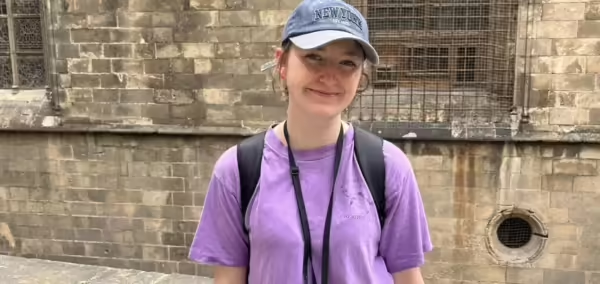
Glasgow University distances itself from newly elected rector after Israel/Gaza comments
In a letter to UKLFI, Principle Sir Anton Muscatelli said the rector’s views ‘do not represent those of the university’
The University of Glasgow has distanced itself from new rector, Dr Ghassan Abu-Sittah, after he claimed that the university “colludes in murder of innocents”.
British-Palestinian surgeon, Dr Abu-Sittah, was elected as the new university rector on April 11th, with 80 per cent of the student vote.
Principle Sir Anton Muscatelli has now outlined publicly how the university is a “wholly independent role” and that the rector’s views “do not represent those of the university”, the Times reports.
In addition to his comments on the university, Abu-Sittah spoke of the country’s stance on the situation in Israel and Palestine in his inaugural speech, where he claimed Britain was part of “an axis of genocide”.
Held over the weekend, his investiture resulted in outcry across the UK when Abu-Sittah made reference to various individuals, including Che Guevara, Rosa Luxembourg, and to some controversy, IRA leader, Bobby Sands, referring to him as “immortal”.
Sands was also well known for his role as leader of the 1981 hunger strike. This was a strike in which Irish republican prisoners protested against the removal of Special Category Status, which afforded them more rights in prison.
In a letter to UK Lawyers for Israel (UKLFI), Principle Sir Anton Muscatelli wrote that while the rector is free to express their own opinions, the university does not endorse his comments.
“The rector is a wholly independent role (separate from University senior management) with no executive authority in the University, and whilst the rector is free to express their thoughts and represent those of students – indeed this has been the case throughout history – we are clear these views are independent and do not represent those of the university.”
A rector, Dr Abu Sittah is obliged to represent all students in the university’s court.
The principle and vice-chancellor has since created channels of communication for the representations of Jewish students who wish not to be represented by Dr Abu Sittah.
Sir Anton wrote: “We will of course be seeking to reassure both Israeli and Jewish students (indeed all students) that they are safe; that there are multiple routes (both formal and informal) to raise any concerns they have; that students seeking representation can speak to the Students’ Representative Council rather than the Rector if they wish to.”
Abu Sittah also received criticism after he pledged to replace the IHRA definition of antisemitism with the Jerusalem Definition in his election manifesto.
Sir Anton also told UKLFI that all members of Court, including the new rector, are required to uphold the principles of public life and that the university’s adoption of the IHRA definition of antisemitism remains in place.
He wrote: “Harassment and abuse of any kind, including antisemitism, will not be tolerated at the university and any instances will be investigated and dealt with accordingly.”
Dr Ghassan Abu-Sittah was approached for comment.
Related articles recommended by this author:
• Sir Anton Muscatelli to retire as principle and vice-chancellor of Glasgow University
• Newly elected Rector claims Glasgow University ‘colludes in the murder of innocents’
• Glasgow Uni professor defends Germany at ICJ against claims it ‘enabled genocide’ in Gaza
Featured image via YouTube



















